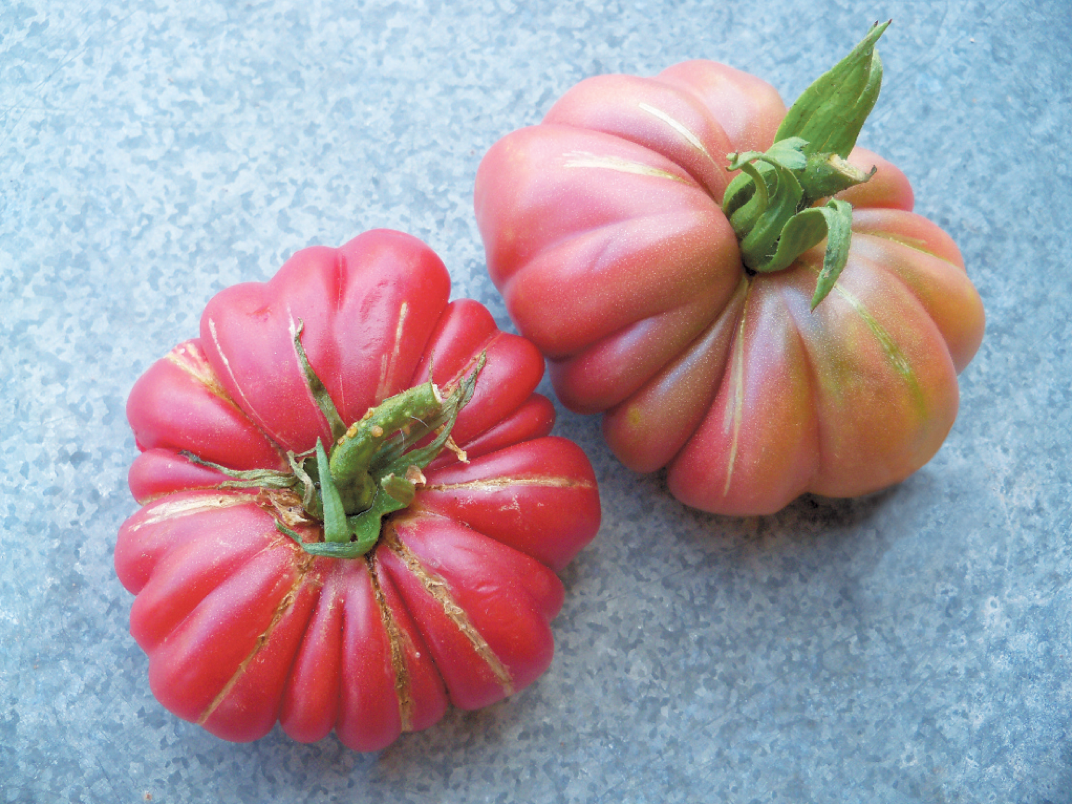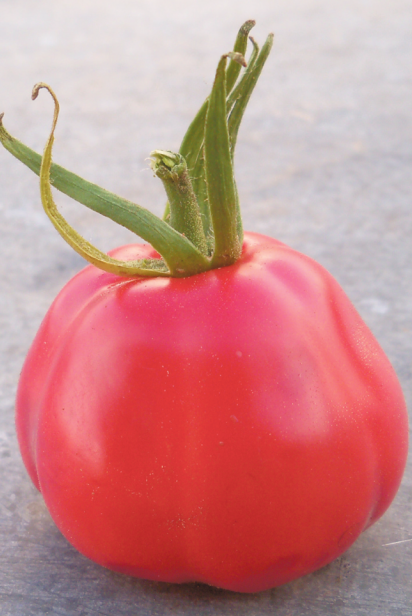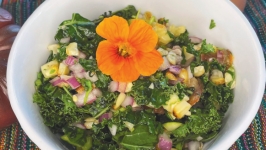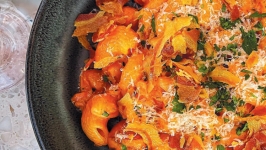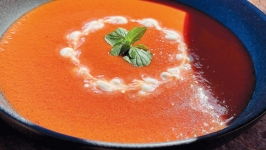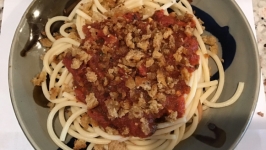One Seed Makes a Difference
One of my favorite teachers always tells his students to: "Go do something epic."
Ever since he said that to me I have spent a significant amount of time pondering just what it takes to do epic. The dictionary defines "epic" as heroic, majestic, impressively great, but most of the people I've discovered who are doing epic things in the world typically didn't start out that way. They simply found an interest or passion and pursued it.
I talked with just such a person recently as I traveled to the Native Seeds/SEARCH farm in Patagonia, Arizona. Seated behind me in the van was a woman named Jeau (pronounced "Jo") Allen, who I had met just two days prior in Seed-Saving Boot Camp. I soon learned that over the years Jeau has worn many hats, but none of them come anywhere near her current task of propagating and growing her own food.
When a few years ago her husband was transferred to Aravaipa Canyon, where there were very few jobs available, Jeau was at a loss as to what to do with her time. She was incredibly fascinated with the wild food growing in the area so she began harvesting prickly pears and mesquite beans, processing them and selling them at surrounding farmers markets.
As she planted herself in the local food movement she was pulled in by the tomato, often called the gateway drug to gardening–a pleasant plant that draws you into a full-blown gardening addiction. Greatly intrigued, she discovered that there are literally thousands of different varieties of tomatoes.
As she dug deeper into tomato varietals, she discovered two lists identifying plants and animals now considered endangered in North America: the Restoring Americas Food Traditions (RAFT) list and the Ark of Taste food list–both of which are chock full of foods such as the Eulachon smelt, a small fish from the Pacific Northwest used for its oil, and the Marshall strawberry, once declared the finest eating strawberry in America.
In typical collector mode, she decided to collect all of the 33 tomatoes and 29 peppers on the two lists–some of which were marked "functionally extinct"–and then set out to find as many of these rare varieties as she could.
Jeau explained, "In the scope of making a difference in the world there is not a lot that I can do to save the polar bear. I can, however, make a huge difference by saving the seeds from one tomato and literally save the variety." She notes that just one tomato plant can net thousands of seeds.
Enter the Zapotec Yellow Flesh tomato, one of the rarest Zapotec varieties on Earth. In fact, it is so rare that Jeau tracked it down to a single gardener in Belgium. Not such a difficult task these days with the internet and e-mail, until she found out that the gardener had passed away a few years earlier and the seeds might be decades old. She was undeterred and spent the next few months communicating with the gardener's wife–in a language that she only had a cursory understanding of from her high school French class. Jeau persisted, however, and achieved success in November 2010 when she received a package containing a mere 30 seeds in the mail.
For her that was a triumphant day.
"With saving seeds comes a big responsibility," says Jeau. I'd say that is particularly true in this case where Jeau was holding the entire future of this tomato in one small envelope.
Zapotec Yellow Flesh tomato seeds in hand, she had to decide just how many to grow. What if she planted them all and due to circumstances beyond her control they did not come up? Seven of the thirty was what she decided to plant and magically five plants grew. Since then she has been diligently tending the plants and saving the seeds, and she has now grown her Zapotec Yellow Flesh tomato seed collection to more than 600 seeds.
Saving one little seed here or there may not make a significant difference to the future of food. But thousands of us saving and growing one little seed will make a significant difference by preserving the significant biodiversity that lives in our heirloom plant varieties.
"The mottled coloring, shadows and the different shades imply that something genetically different is going on. There may be something very important going on genetically that we may need to preserve," says Jeau about her mission.
The sole holdout on Jeau's magical list of tomatoes is the Mankin Plum tomato, which she has tracked down to the garage of a grower. For three years he has been promising that when he cleans out his garage he will send the seeds. I'd like to be a fly on the wall the day that happens.
Today Jeau's company, Aravaipa Heirlooms, has 218 varieties of tomato seed and 88 varieties of pepper seed in its collection. Each year they grow a subset of these and this summer they have a mere 80 tomato and 25 pepper varieties growing. Plus, they grow a lone eggplant and a few desert southwest herbs including a cilantro-like herb called papaloquelite.
"Almost all of our 218 'maters are special in some way or another, whether endangered, Southwestern or Mexican heirlooms," Jeau notes.
Her task did not set out to be an epic journey; it began with the simple desire (yet complicated process) of tracking down some very rare seeds. It continued when Jeau stepped out to grow a few tomatoes and peppers, and has resulted in what will likely be an epic legacy that could last well beyond her time here on Earth.
FOR MORE INFORMATION
RAFT: environment.nau.edu/raft/renewing_americas_food_traditions.pdf
Ark of Taste: slowfoodusa.org/index.php/programs/details/ark_of_taste
Native Seed Search: nativeseeds.org (newly designed website)
Aravaipa Heirlooms: aravaipa.com
Prickly Pops: pricklypops.com
Mesquite: mesquiteflour.com


